第113章
Besides, people who, like the Athenians in the present instance, are tempted by pride of strength to attack their neighbours, usually march most confidently against those who keep still, and only defend themselves in their own country, but think twice before they grapple with those who meet them outside their frontier and strike the first blow if opportunity offers. The Athenians have shown us this themselves; the defeat which we inflicted upon them at Coronea, at the time when our quarrels had allowed them to occupy the country, has given great security to Boeotia until the present day. Remembering this, the old must equal their ancient exploits, and the young, the sons of the heroes of that time, must endeavour not to disgrace their native valour; and trusting in the help of the god whose temple has been sacrilegiously fortified, and in the victims which in our sacrifices have proved propitious, we must march against the enemy, and teach him that he must go and get what he wants by attacking someone who will not resist him, but that men whose glory it is to be always ready to give battle for the liberty of their own country, and never unjustly to enslave that of others, will not let him go without a struggle."By these arguments Pagondas persuaded the Boeotians to attack the Athenians, and quickly breaking up his camp led his army forward, it being now late in the day. On nearing the enemy, he halted in a position where a hill intervening prevented the two armies from seeing each other, and then formed and prepared for action. Meanwhile Hippocrates at Delium, informed of the approach of the Boeotians, sent orders to his troops to throw themselves into line, and himself joined them not long afterwards, leaving about three hundred horse behind him at Delium, at once to guard the place in case of attack, and to watch their opportunity and fall upon the Boeotians during the battle.
The Boeotians placed a detachment to deal with these, and when everything was arranged to their satisfaction appeared over the hill, and halted in the order which they had determined on, to the number of seven thousand heavy infantry, more than ten thousand light troops, one thousand horse, and five hundred targeteers. On their right were the Thebans and those of their province, in the centre the Haliartians, Coronaeans, Copaeans, and the other people around the lake, and on the left the Thespians, Tanagraeans, and Orchomenians, the cavalry and the light troops being at the extremity of each wing. The Thebans formed twenty-five shields deep, the rest as they pleased. Such was the strength and disposition of the Boeotian army.
On the side of the Athenians, the heavy infantry throughout the whole army formed eight deep, being in numbers equal to the enemy, with the cavalry upon the two wings. Light troops regularly armed there were none in the army, nor had there ever been any at Athens.
Those who had joined in the invasion, though many times more numerous than those of the enemy, had mostly followed unarmed, as part of the levy in mass of the citizens and foreigners at Athens, and having started first on their way home were not present in any number.
The armies being now in line and upon the point of engaging, Hippocrates, the general, passed along the Athenian ranks, and encouraged them as follows: